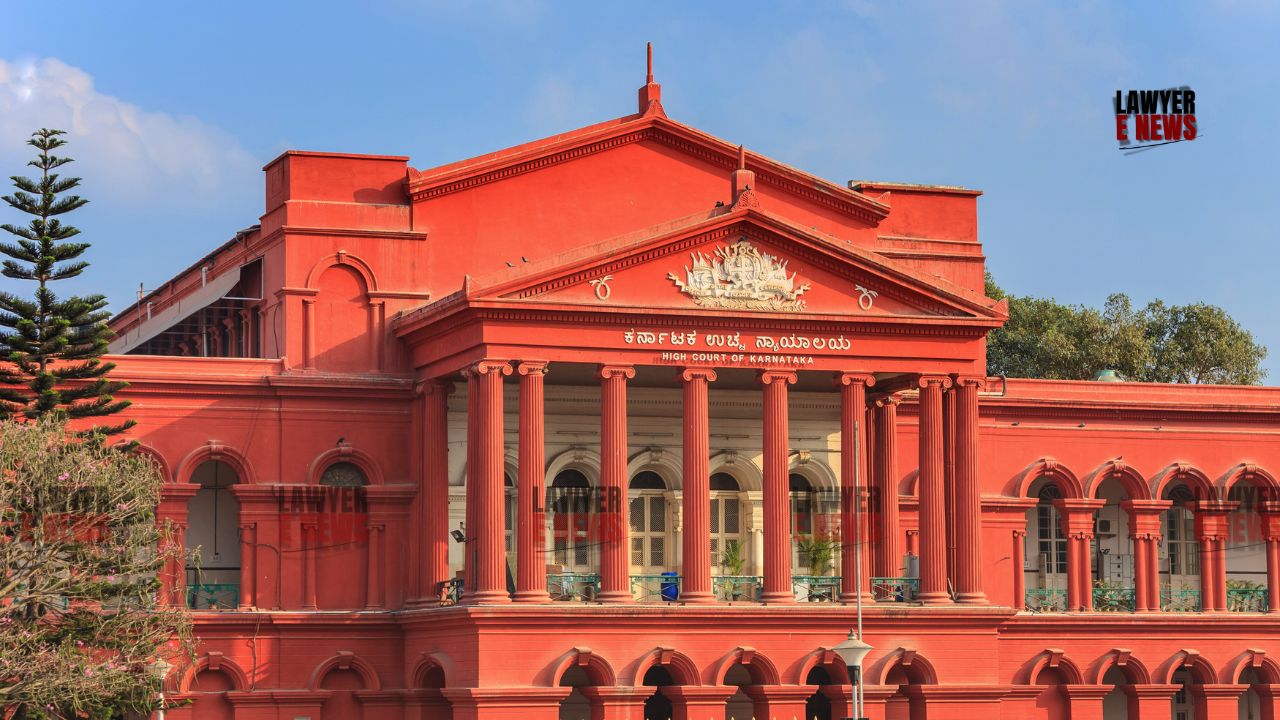-
by Admin
15 February 2026 5:35 AM



High Court Quashes FIR Against Paramour and Her Mother, Citing Lack of Substantial Allegations and Evidence - In a significant ruling, the Karnataka High Court has quashed the FIR against Smt. Nandini Nallappan and her mother, Smt. Alamelu Nallappan, who were implicated in a dowry harassment case. Justice M. Nagaprasanna’s judgment underscores the necessity of concrete evidence to sustain charges, particularly under Section 498A IPC, which pertains to cruelty by a husband or his relatives.
The case originated from a complaint filed by Smt. Swarna against her husband, Accused No. 1, and several other relatives, including Nandini and Alamelu. The complaint alleged multiple offenses, including physical assault and dowry demands. Nandini was identified as the paramour of the complainant’s husband, while Alamelu was her mother. The FIR was registered under various sections of the IPC and the Dowry Prohibition Act, including Sections 498A (cruelty), 323 (voluntarily causing hurt), 324 (voluntarily causing hurt by dangerous weapons), 307 (attempt to murder), 420 (cheating), 504 (intentional insult), 506 (criminal intimidation), and 34 (common intention).
Justice Nagaprasanna scrutinized the complaint and found no substantive reference or evidence implicating the petitioners in the alleged offenses. “There is not even a sprinkling reference to these petitioners which would touch upon the ingredients of any of the offenses so alleged against the petitioners,” the judgment noted.
The court highlighted a pivotal legal principle concerning Section 498A IPC, which applies to cruelty by a husband or his relatives. “A paramour of an accused cannot be dragged into proceedings under Section 498A of IPC as the said accused would not become a relative or a member of the family as is necessary under Section 498A of IPC,” Justice Nagaprasanna stated, thereby nullifying the charge against Nandini on this ground alone.
The court further observed that the complaint lacked specific allegations to substantiate the other charges under Sections 323, 324, 307, 420, 504, and 506 IPC against the petitioners. “None of the ingredients of any of the offenses can be found against the first petitioner. Offenses against the first petitioner are therefore loosely laid,” the judgment asserted.
Continuing proceedings against the petitioners without foundational allegations was deemed an abuse of the judicial process. “If further proceedings are permitted to be continued, it would become an abuse of process of law,” the court concluded.
Justice Nagaprasanna remarked, “It is settled principle of law that a paramour of an accused cannot be dragged into proceedings under Section 498A of IPC,” emphasizing the legal boundaries of the statute.
The Karnataka High Court’s decision to quash the FIR against Smt. Nandini Nallappan and Smt. Alamelu Nallappan reinforces the necessity of concrete evidence and clear allegations in criminal proceedings. By delineating the scope of Section 498A IPC, the judgment not only provides relief to the petitioners but also clarifies the application of legal principles in similar cases. The findings are specifically limited to the petitioners and do not affect the trial of other accused in the case.
Date of Decision: 12th June 2024
Smt. Nandini Nallappan VS State of Karnataka
